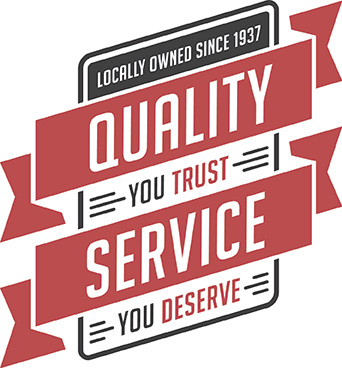When the temperatures drop inSouth Bend, Mishawaka, Granger, and Elkhart, a reliable furnace is crucial for keeping your home warm and comfortable. But what happens when your furnace starts acting up? Before calling a professional, there are several furnace troubleshooting techniquesyou can try to diagnose and potentially fix the issue.
Thistroubleshooting guidefor your furnace will walk you through common furnace problems and solutions, helping you determine when a quick fix will do the trick and when it’s time to call an expert.
1. Check the Thermostat First
A malfunctioning or incorrectly set thermostatis one of the most overlooked furnace problems. Before assuming there’s a major issue, take the following steps:
- Ensure the thermostat is set to “HEAT.”
- Confirm the temperature is set higherthan the current room temperature.
- If your thermostat has batteries, replace them.
- Make sure the fan setting is on “AUTO” instead of “ON.”
If the thermostat screen is blank or unresponsive, it may need replacement or rewiring.
2. Inspect the Air Filter
A clogged air filter is one of the most common reasons a furnace stops heating effectively, as it restricts airflow, causing the system to overheat and shut down prematurely. In fact, this is one of the most frequent emergency calls we receive, and more often than not, the solution is as simple as replacing a dirty filter. A dirty filter can:
- Restrict airflow, causing the furnace to overheat and shut down.
- Force the system to work harder, increasing energy bills.
- Reduce indoor air quality by circulating dust and allergens.
Solution:Check your air filter monthly and replace it every 1-3 months, especially during peak heating season.
3. Verify the Power Supply
If your furnace won’t turn on at all, it might not be getting power. Try these furnace troubleshooting techniques:
- Check the circuit breaker– if it has tripped, reset it.
- Inspect the power switchnear the furnace – it should be in the “ON” position.
- If you have a gas furnace, make sure the pilot lightor ignition system is functioning.
If power issues persist, a professional inspection may be required.
4. Pilot Light or Ignition System Issues
For gas furnaces, the pilot lightor ignition systemplays a crucial role in heating. If your furnace is not igniting, the issue may stem from:
- A dirty or broken thermocouple, preventing the pilot light from staying lit.
- A clogged ignition systemthat requires cleaning.
- A faulty electronic ignition sensorthat needs professional servicing.
If you’re comfortable, you can try relighting the pilot light by following the manufacturer’s instructions. However, if you suspect a gas leakor smell rotten eggs, evacuate your home immediately and call your utility provider. You should also contact a trusted HVAC company to inspect your system and ensure it is safe to operate.
5. Furnace Is Running but No Heat Is Coming Out
If your furnace turns on but doesn’t produce heat, there could be a few different causes:
- Dirty burners– If the burners are clogged, they won’t generate heat effectively.
- Gas supply issues– If there’s a disruption in the gas supply, the furnace won’t be able to produce heat. A professional technician should inspect and address any gas-related concerns.
- Faulty heat exchanger– A cracked heat exchanger can reduce efficiency and may need replacement.
For these issues, the best solution is to have a professional HVAC techniciandiagnose and resolve the problem to ensure your furnace operates safely and efficiently. If heating problems persist, expertfurnace troubleshooting will be necessary to identify and fix the issue.
6. Short Cycling – Furnace Turning On and Off Too Frequently
Short cycling occurs when a furnace turns on and off in quick cycles, preventing the home from reaching the desired temperature. Causes may include:
- Overheating due to a clogged filter
- A malfunctioning thermostat
- Blocked vents restricting airflow
- A faulty flame sensor
Solution:Start by replacing the air filter, ensuring vents are open, and checking the thermostat settings. If the issue continues, schedule a professional inspection.
7. Unusual Noises Coming from the Furnace
A properly functioning furnace should operate quietly. If you hear unusual sounds, here’s what they might indicate:
- Banging or booming– Delayed ignition or dirty burners.
- Rattling– Loose panels or components.
- Squealing or screeching– Worn-out blower motor or belt.
- Humming– An electrical issue with the motor or transformer.
Tightening loose parts, lubricating moving components, or cleaning the burners can sometimes resolve the issue. However, if noises persist, a professional furnace diagnosticwill be needed.
8. Furnace Blower Keeps Running Nonstop
If your furnace blower motor won’t turn off, it could be due to:
- A stuck fan limit switch, requiring manual adjustment or replacement.
- The thermostat fan settingbeing set to “ON” instead of “AUTO.”
- An internal control board issue that requires professional attention.
Try switching the thermostat to “AUTO” first. If the problem continues, it may be time for furnace repair.
9. Cold Spots or Uneven Heating in Your Home
If some rooms feel warm while others remain chilly, the problem may lie in your ductwork or airflow distribution. Possible causes include:
- Leaky or disconnected ductworkthat prevents warm air from reaching certain areas.
- Blocked vents or registersthat need to be cleared.
- A failing blower motorthat isn’t distributing air evenly.
A professional duct inspection can identify leaks and improve your home’s comfort.
10. High Energy Bills Without a Clear Cause
If your heating bills have suddenly spiked without any changes in your usage, your furnace may be losing efficiency. Common culprits include:
- A dirty air filterforcing the system to work harder.
- Aging furnace componentsreducing overall efficiency.
- Leaky ductworkwasting heated air.
Regular furnace maintenancecan help prevent these issues and lower energy costs.
When to Call a Professional for Furnace Repairs
While DIY furnace troubleshooting techniquescan resolve some minor issues, there are times when professional serviceis necessary. Contact an HVAC expert if:
- The furnace refuses to turn ondespite checking the power and thermostat.
- You smell gas or suspect a leak.
- The system is making loud or unusual noises.
- There’s weak or no airflowfrom the vents.
- The furnace is short cycling or overheating.
Prompt repairs can prevent small issues from turning into costly breakdowns.

Professional Furnace Repairs in South Bend & ElkhartGet Professional Furnace Repairs in South Bend, Mishawaka, Granger & Elkhart
If you’re experiencing heating problems, Goff Heating & Air Conditioningis here to help! Our team specializes in diagnosing common furnace problems and solutions, ensuring your system runs efficiently throughout Indiana’s harsh winters.
- Serving South Bend, Mishawaka, Granger, and Elkhart
- Bryant Factory Authorized Dealer & 2024 Circle of Champions Winner
- GoffCare Maintenance Membership for priority service and savings
Don’t let a malfunctioning furnace leave you in the cold—schedule your furnace repair today!
Quality You Trust. Service You Deserve. Since 1937.

